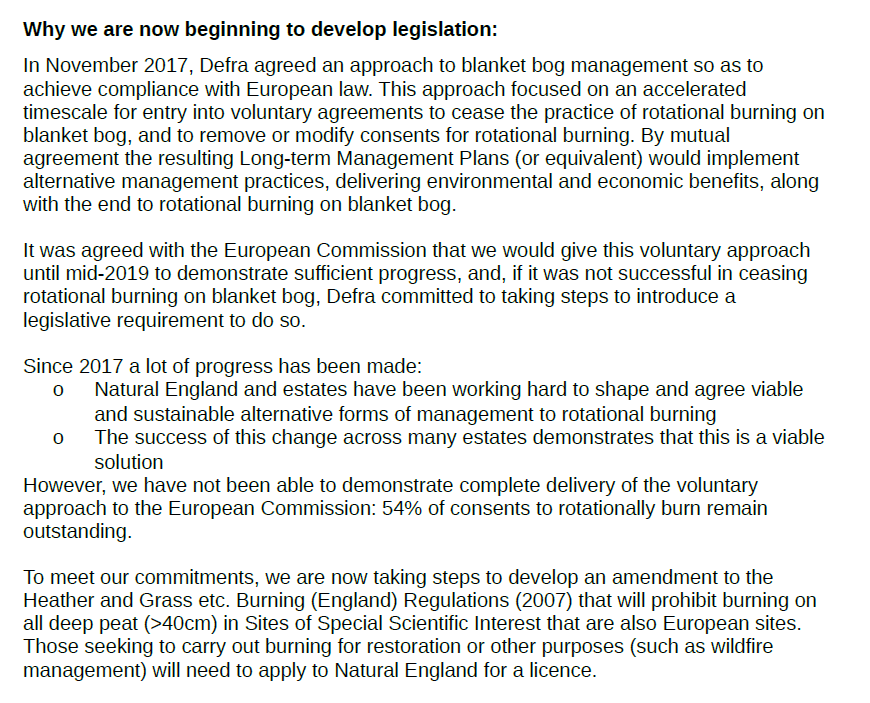This how DEFRA explains its position on legislation to end burning on deep peat – it should be on all peat, just as the Committee on Climate Change recommended.

54% of pre-existing consents to burn remain – that means that only about a half of landowners have agreed voluntarily to any change. You may remember that the Walshaw Moor Estate is a grouse moor that did not rapidly move to a voluntary agreement with Natural England. It tried to make cessation of (most, not all) harmful burning conditional on being given permission to build a track through blanket bog – but we stopped that (see here and here).
I’m slightly surprised, and quite impressed, that DEFRA hasn’t been feeble with the grouse estate owners and managers. But the arguments keep mounting – that report from the Committee on Climate Change is not primarily to do with nature conservation legislation, it’s to do with low-regret moves to reduce greenhouse gas emissions (a massively bigger agenda). And floods continue to raise the question of how much worse these floods are because of burning and drainage on grouse moors.
If I had a grouse moor, I’d be thinking of flogging it off to my less intelligent neighbour, I think.
[registration_form]
I should know this, but to save me looking it up, how much “deep peat” ground is contained
within SSSI’s, and European directive sites , or if its simpler, how much isn’t ? .
What’s the matter with you people ?, i only asked a question .
Don’t worry, i have a bit of time now, i will look it up myself.
Your last para may suffer from what I believe is called in classical syllogistic logic the fallacy of the undistributed middle.
If I owned a grouse moor I would be rewetting and in areas where heather was long and needed managing I’d cut it with a chain flail using a 4 wheel drive vehicle with balloon tyres. Then for me it wouldn’t be a grouse moor anyway just an upland area with good wildlife and natural processes. Imagine somewhere like the Colsterdale block ( c 17,000 acres) managed for wildlife and biodiversity not Red Grouse.
You are right, Mark, that burning should be banned on all peat. This will concentrate burning on shallow peat which is often drier and more vulnerable to damage.